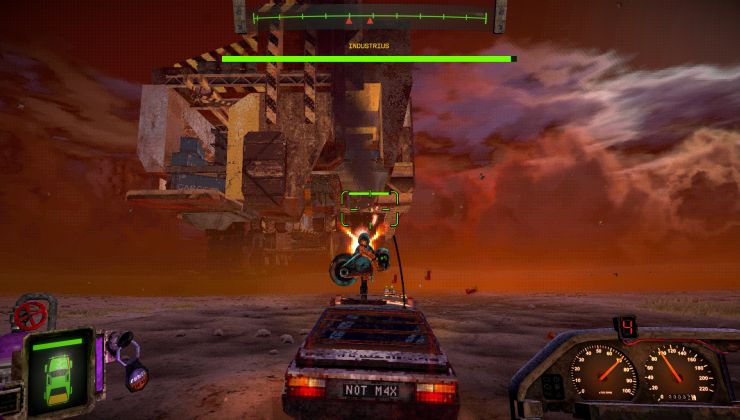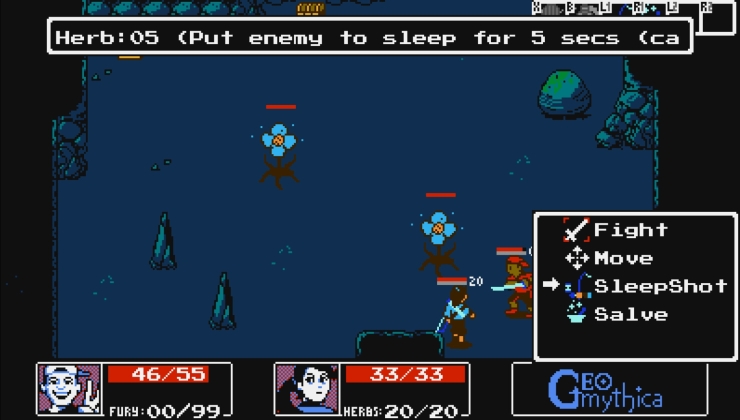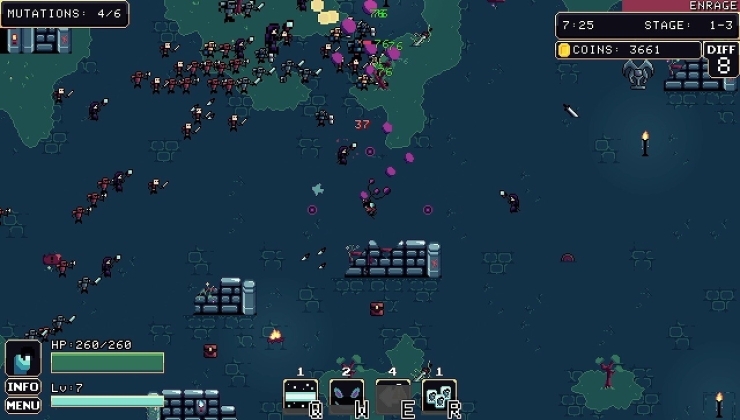Dota 2 is Valve's first game to support Vulkan, the successor to OpenGL. This is Valve's first public release of the game to use Vulkan, so there will be some rough edges. It is in beta, so it's not finished.
You will need to opt-in to the Steam Client Beta to get more recent Steam Overlay fixes for Vulkan. Without it, the Steam Overlay will cause a performance drop with Vulkan enabled games.
You will need to click the Vulkan DLC in your Steam library and run Dota 2 with the "-vulkan" launch option to make it use it.
GPU drivers: NVIDIA 600-series+ (364.16+ driver), AMD GCN 1.2 (16.20.3 driver). You will also need at least 2GB of VRAM or it may crash.
A new Nvidia driver is due to come out with vertical sync fixes, as the game will still tear even with it on.
Basic testing, Intel i7, Nvidia 980ti
With the Vulkan option enabled basic gameplay with not much going on it was fluctuating between 79-85FPS.
With the OpenGL option the same was sitting at around 100-110FPS.
I imagine the Vulkan option will improve much more over time. Considering that API, drivers and game implementation are all knew we need to give it time to mature.
Actual benchmarking
I tried to use the famous Phoronix Test Suite to benchmark it, but I find that software to be rather cumbersome and annoying to use. I can't seem to get the Dota 2 benchmark to even run. I edited the script to actually point to my Dota 2 install (the PTS test relies on the default install location) but it doesn't find Steam). See my forum post on Phoronix here about it, maybe someone can shed some light as I've never really used PTS before. If I can get it to work, I will do some proper tests.
See the news post on the official Dota 2 website here.
File any bugs you find on github here.
You will need to opt-in to the Steam Client Beta to get more recent Steam Overlay fixes for Vulkan. Without it, the Steam Overlay will cause a performance drop with Vulkan enabled games.
You will need to click the Vulkan DLC in your Steam library and run Dota 2 with the "-vulkan" launch option to make it use it.
GPU drivers: NVIDIA 600-series+ (364.16+ driver), AMD GCN 1.2 (16.20.3 driver). You will also need at least 2GB of VRAM or it may crash.
A new Nvidia driver is due to come out with vertical sync fixes, as the game will still tear even with it on.
Basic testing, Intel i7, Nvidia 980ti
With the Vulkan option enabled basic gameplay with not much going on it was fluctuating between 79-85FPS.
With the OpenGL option the same was sitting at around 100-110FPS.
I imagine the Vulkan option will improve much more over time. Considering that API, drivers and game implementation are all knew we need to give it time to mature.
Actual benchmarking
I tried to use the famous Phoronix Test Suite to benchmark it, but I find that software to be rather cumbersome and annoying to use. I can't seem to get the Dota 2 benchmark to even run. I edited the script to actually point to my Dota 2 install (the PTS test relies on the default install location) but it doesn't find Steam). See my forum post on Phoronix here about it, maybe someone can shed some light as I've never really used PTS before. If I can get it to work, I will do some proper tests.
See the news post on the official Dota 2 website here.
File any bugs you find on github here.
Some you may have missed, popular articles from the last month:
All posts need to follow our rules. For users logged in: please hit the Report Flag icon on any post that breaks the rules or contains illegal / harmful content. Guest readers can email us for any issues.
I tried to use the famous Phoronix Test Suite to benchmark it, but I find that software to be rather cumbersome and annoying to use. I can't seem to get the Dota 2 benchmark to even run. I edited the script to actually point to my Dota 2 install (the PTS test relies on the default install location) but it doesn't find Steam). See my forum post on Phoronix here about it, maybe someone can shed some light as I've never really used PTS before. If I can get it to work, I will do some proper tests.
The GoL/Phoronix Blood Feud continues... :D
0 Likes
Not at all, I have great respect for his work despite my comments now and then (Read Phoronix for years), but PTS could use some quality of life updates to make it simpler to use. A UI wouldn't be a bad idea either.I tried to use the famous Phoronix Test Suite to benchmark it, but I find that software to be rather cumbersome and annoying to use. I can't seem to get the Dota 2 benchmark to even run. I edited the script to actually point to my Dota 2 install (the PTS test relies on the default install location) but it doesn't find Steam). See my forum post on Phoronix here about it, maybe someone can shed some light as I've never really used PTS before. If I can get it to work, I will do some proper tests.
The GoL/Phoronix Blood Feud continues... :D
2 Likes
Not at all, I have great respect for his work despite my comments now and then (Read Phoronix for years), but PTS could use some quality of life updates to make it simpler to use. A UI wouldn't be a bad idea either.Yeah, I'm just having a spot of tongue in cheek fun.
On topic: I suspect we won't be seeing gains immediately, as with Talos, as it's probably either just a wrapper or a very basic/barebones implementation right now.
0 Likes
while in development doing a benchmark won't do any good because with the development layers in place Vulkan operates much like OpenGL does on a normal basis. you may see some increases once it's more optimized. you won't see full potential until the development layers are removed from the Vulkan development build, which is when it will be officially released.
0 Likes
while in development doing a benchmark won't do any good because with the development layers in place Vulkan operates much like OpenGL does on a normal basis. you may see some increases once it's more optimized. you won't see full potential until the development layers are removed from the Vulkan development build, which is when it will be officially released.
Where did you get the idea that they actually ship with those layers on? I would think it would be common sense to disable them even if it's a beta. I'd wager you wouldn't get 20FPS out of it if that was the case.
1 Likes
while in development doing a benchmark won't do any good because with the development layers in place
Development layers can easily be enabled/disabled on runtime using environment variables. Or even when they are configured via game settings, they can be easily disabled and then they cause _no_ overhead. Vulkan validation and debug layers is not a thing that you recompile your whole project with. Just enable it, or not, when loading the Vulkan driver.
There might be some other development / debugging code enabled there, though.
Last edited by Jajcus on 24 May 2016 at 12:56 pm UTC
1 Likes
Nice. Having Dota2 on Vulkan means that Valve now is going to do the same as Croteam: Testing, optimizing and helping driver developers test performance to improve the drivers.
0 Likes
Michael should indeed update some scripts from the suite (he has this habit of leaving less used scripts to rot), but not sure what you mean by "cumbersome and annoying to use", its graphical interface is already dead simple.Not at all, I have great respect for his work despite my comments now and then (Read Phoronix for years), but PTS could use some quality of life updates to make it simpler to use. A UI wouldn't be a bad idea either.I tried to use the famous Phoronix Test Suite to benchmark it, but I find that software to be rather cumbersome and annoying to use. I can't seem to get the Dota 2 benchmark to even run. I edited the script to actually point to my Dota 2 install (the PTS test relies on the default install location) but it doesn't find Steam). See my forum post on Phoronix here about it, maybe someone can shed some light as I've never really used PTS before. If I can get it to work, I will do some proper tests.
The GoL/Phoronix Blood Feud continues... :D
View video on youtube.com
Last edited by dubigrasu on 24 May 2016 at 2:00 pm UTC
0 Likes
The official site has no link to any kind of manual I could find. Unless I am blind, only found it by googling for it: http://www.phoronix-test-suite.com/documentation/phoronix-test-suite.html
As for the GUI, it seems it does include some kind of HTML5 UI, but even that won't load without first configuring by a text file. It doesn't tell you what to configure either, just tells you to do it.
As for the GUI, it seems it does include some kind of HTML5 UI, but even that won't load without first configuring by a text file. It doesn't tell you what to configure either, just tells you to do it.
0 Likes
The official site has no link to any kind of manual I could find. Unless I am blind, only found it by googling for it: [http://www.phoronix-test-suite.com/documentation/phoronix-test-suite.html](http://www.phoronix-test-suite.com/documentation/phoronix-test-suite.html)
As for the GUI, it seems it does include some kind of HTML5 UI, but even that won't load without first configuring by a text file. It doesn't tell you what to configure either, just tells you to do it.
You don't have to configure anything, just start with "phoronix-test-suite gui" and agree to User Agreement.
0 Likes
Just tried it out in a full game. Crashed twice, and seemed to have a short period when first loading the game each time where the textures would flicker a bit. But it would stop after a minute or two.
Performance is still lower than OpenGL as the article said, but still very much playable.
I look forward to seeing how much it improves.
Last edited by stss on 24 May 2016 at 2:38 pm UTC
Performance is still lower than OpenGL as the article said, but still very much playable.
I look forward to seeing how much it improves.
Last edited by stss on 24 May 2016 at 2:38 pm UTC
1 Likes
while in development doing a benchmark won't do any good because with the development layers in place Vulkan operates much like OpenGL does on a normal basis. you may see some increases once it's more optimized. you won't see full potential until the development layers are removed from the Vulkan development build, which is when it will be officially released.
Where did you get the idea that they actually ship with those layers on? I would think it would be common sense to disable them even if it's a beta. I'd wager you wouldn't get 20FPS out of it if that was the case.
this has been mentioned in the various talks and presentations by the Khronos Group and certain developers that have already had some experience with the API.
BTW the game has not "shipped" it is in BETA.
Last edited by neowiz73 on 24 May 2016 at 4:53 pm UTC
0 Likes
while in development doing a benchmark won't do any good because with the development layers in place
Development layers can easily be enabled/disabled on runtime using environment variables. Or even when they are configured via game settings, they can be easily disabled and then they cause _no_ overhead. Vulkan validation and debug layers is not a thing that you recompile your whole project with. Just enable it, or not, when loading the Vulkan driver.
There might be some other development / debugging code enabled there, though.
without the dev layers in place then the whole game would crash much easier, it doesn't have the same built in support that openGL has from my understanding. with the dev layers in place it gives a lot of error feedback as well as other analysis. this is much of the reason why it's slower than that of openGL when in development.
Last edited by neowiz73 on 24 May 2016 at 5:03 pm UTC
0 Likes
while in development doing a benchmark won't do any good because with the development layers in place Vulkan operates much like OpenGL does on a normal basis. you may see some increases once it's more optimized. you won't see full potential until the development layers are removed from the Vulkan development build, which is when it will be officially released.
Where did you get the idea that they actually ship with those layers on? I would think it would be common sense to disable them even if it's a beta. I'd wager you wouldn't get 20FPS out of it if that was the case.
this has been mentioned in the various talks and presentations by the Khronos Group and certain developers that have already had some experience with the API.
BTW the game has not "shipped" it is in BETA.
How about a source?
0 Likes
BTW the game has not "shipped" it is in BETA.
How about a source?
I agree, if it were officially released you shouldn't have to add the "-vulkan" flag when you launch the game, it should be a menu option in the graphics settings. Also if it's official then having Vulkan support as DLC also seems a bit clumsy.
0 Likes
This is some dota 2 opengl and vulkan tests
System Specs Used in Both Tests
Nvidia Drivers 367.18 (run package from nvidia homepage)
Xubuntu 16.04 64Bit - Kernel 4.4.0-23 generic (ubuntu mainline) - CPUFreq: Performance
CPU: INTEL Pentium G3258 (Haswell 22nm) 4.1Ghz + Artic Cooling Alpine 11 Plus
MEM: 8GB DDR3 1333 (2x4) Patriot value (dual channel: 21.3 gb/s)
GPU: Zotac Nvidia Geforce GT630 (GK208 28nm: 384 Shaders / 8 ROPS) Zone Edition Passive Cooling 2GB DDR3 1800Mhz 64Bit (14.4Gb/s)
MAINBOARD: MSI H81M E33
OpenGL
View video on youtube.com
Vulkan
View video on youtube.com
Concluded test can say this: opengl client dont use gpu at max but leave enough gpu for dont give troubles when nvenc stay recording at 48fps
But on vulkan side gpu shows more higher values 99 and 100% in some time periods and this dont allow use nvenc for recording at 48fps, only possible use 30fps without problems*
*If gpu have 99 or 100% of use nvenc down use and if this situation appears video recording is damaged because nvenc skip fps
Respect performance as others said performance is similar in some situations less or more: with much objects in scene is more notorious or with some explosions
Without forget vulkan stay stable on test (no crash) and 48fps nvenc recording reduce performance around 10 to 15fps depending scene
^_^
Last edited by mrdeathjr on 25 May 2016 at 2:45 am UTC
System Specs Used in Both Tests
Nvidia Drivers 367.18 (run package from nvidia homepage)
Xubuntu 16.04 64Bit - Kernel 4.4.0-23 generic (ubuntu mainline) - CPUFreq: Performance
CPU: INTEL Pentium G3258 (Haswell 22nm) 4.1Ghz + Artic Cooling Alpine 11 Plus
MEM: 8GB DDR3 1333 (2x4) Patriot value (dual channel: 21.3 gb/s)
GPU: Zotac Nvidia Geforce GT630 (GK208 28nm: 384 Shaders / 8 ROPS) Zone Edition Passive Cooling 2GB DDR3 1800Mhz 64Bit (14.4Gb/s)
MAINBOARD: MSI H81M E33
OpenGL
View video on youtube.com
Vulkan
View video on youtube.com
Concluded test can say this: opengl client dont use gpu at max but leave enough gpu for dont give troubles when nvenc stay recording at 48fps
But on vulkan side gpu shows more higher values 99 and 100% in some time periods and this dont allow use nvenc for recording at 48fps, only possible use 30fps without problems*
*If gpu have 99 or 100% of use nvenc down use and if this situation appears video recording is damaged because nvenc skip fps
Respect performance as others said performance is similar in some situations less or more: with much objects in scene is more notorious or with some explosions
Without forget vulkan stay stable on test (no crash) and 48fps nvenc recording reduce performance around 10 to 15fps depending scene
^_^
Last edited by mrdeathjr on 25 May 2016 at 2:45 am UTC
0 Likes
But, you have just an DualCore CPU.
Vulkan is usefull with a lot of CPU Core, like 4 cores, 6 cores, 8 cores :3
I want to see the difference between OpenGL and Vulkan with a 6-8 cores for exemple :p
Vulkan is usefull with a lot of CPU Core, like 4 cores, 6 cores, 8 cores :3
I want to see the difference between OpenGL and Vulkan with a 6-8 cores for exemple :p
0 Likes
I want to see the difference between OpenGL and Vulkan with a 6-8 cores for exemple :pAt this point Dota 2 can't show you that difference. Just the difference between one finished and optimized backend (OpenGL) and one that's still in beta. You'll have to wait for a proper benchmark.
2 Likes











 How to set, change and reset your SteamOS / Steam Deck desktop sudo password
How to set, change and reset your SteamOS / Steam Deck desktop sudo password How to set up Decky Loader on Steam Deck / SteamOS for easy plugins
How to set up Decky Loader on Steam Deck / SteamOS for easy plugins
See more from me